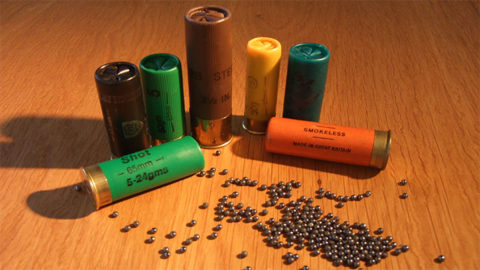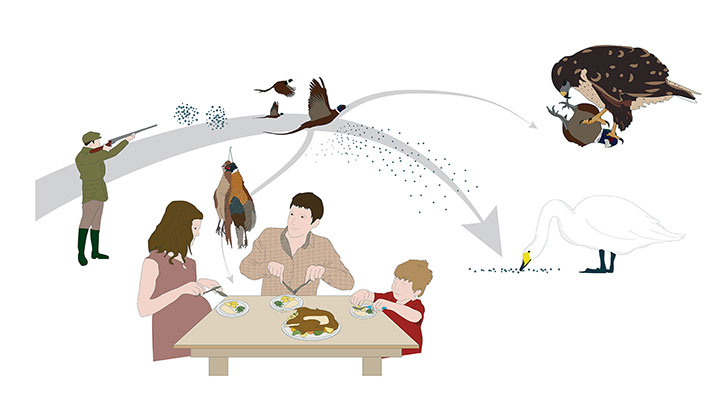
Lead ammunition poisoning is a risk to Europe’s Wetlands
-
International Waterbird Census
-
Species
Lead from ammunition used for hunting is a very serious threat to the environment, especially wetlands and waterbirds. A group of 54 European scientists from 17 European countries have come together to support restrictions on the use of lead ammunition via an Open Letter for the the European Commission. Member States have until 15 July 2020 to express their position on the European Commission proposal, which is being considered under REACH, a European Union regulation concerning the Registration, Evaluation, Authorisation and Restriction of Chemicals. In the days leading up to the vote, it is vital to disseminate why lead ammunition needs to be replaced by the good alternatives that exist. These reasons include its high toxicity to humans – creating public health problems – and its devastating environmental contamination resulting in millions of deaths in our wetlands’ swans, ducks, geese, terrestrial birds and raptors every year.
The current standing under REACH
As it currently stands, several countries have indicated that they will abstain from voting, including Germany (who have the biggest share of the vote on the REACH Committee), Hungary, Slovakia and Latvia. The countries indicating they will vote against are Poland, Czech Republic, Bulgaria, Finland, Ireland, Estonia and Malta.
To help tackle this fatal and urgent problem, Wetlands International has for many years been working on the banning of lead shot and the promotion of alternatives and we continue to work with Wildfowl & Wetlands Trust (WWT) and others to promote change – by encouraging the use of non-toxic alternatives to lead shot, expanding our base of knowledge around lead contamination, and alerting necessary stakeholders to its deadly effects. We have joined WWT in writing letter to the Ministry of Agriculture of Germany to reconsider their decision to abstain, as they have the power to make the difference of this vote.

The risks of lead contamination
There is an overwhelming body of scientific evidence from health professionals and scientists in Europe surrounding the release of lead-based ammunition to the environment, and its effect on society and wildlife. According to WWT, lead shotgun pellets are a primary culprit because they leave a “toxic legacy” for our environment, wildlife and people. Up to one million waterbirds in Europe die through ingesting tiny shot pellets that are mistaken for grit or seeds. Their deaths go unnoticed as they are taken quickly by predators, which is why the extent of lead poisoning is largely invisible.
Humans are victims of lead contamination too – lead ammunition seeps into all spheres of the environment including wildlife, plants, soils, domestic animals and lead-shot game meat – posing a great risk to those who consume it frequently.
In the Open Letter, the scientists urge the Commission, Member States, European Parliament and REACH Committee to not only support the restriction on the use of lead gunshot in or over wetlands, but highlight that a total ban would be the most impactful action when it comes to mitigating the risks posed to human and wildlife health.

What is the solution?
Non-poisonous alternatives to lead ammunition, such as steel shot, work just as well and are economically viable, and will be necessary as part of a greater consensus to sustainable hunting. In Europe, despite shooters being encouraged to use non-toxic alternatives to lead, the cases of lead poisoning are not declining.
More than 20 years ago, European Member States such as the Netherlands and Denmark phased out the use of lead gunshot in all habitats. Similarly, we see that the full ban has not affected shooting numbers or activities. That is why it is time to apply the same changes to the rest of Europe – to help protect our African–Eurasian Flyway – our healthy populations of wild birds in the wetlands – and to keep lead poisoning off our soils, domestic animals and plates.
To find out how you can help, or for more information, see the work our partner WWT are doing to help curb the problem and what they have achieved so far. Find the Open Letter here, and the evaluation of the proposal to regulate lead in hunting ammunition here.
Lead image by by CJ Berry, Flickr
